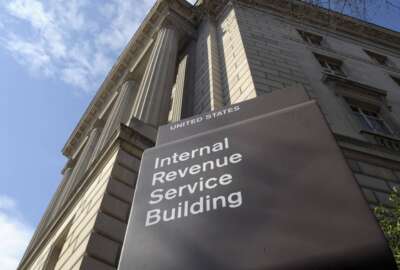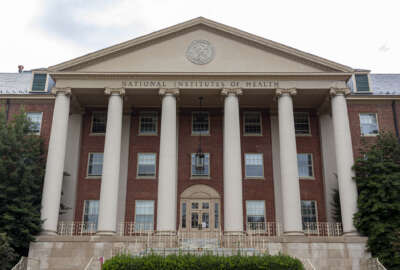House Dems’ budget plan not mirror of President’s, Van Hollen says
The House Democrats\' budget proposal is the most fed-friendly of the plans put forth for fiscal 2013.
wfedstaff | June 4, 2015 7:05 pm
The House Democrats’ budget proposal is the most fed-friendly of the plans put forth for fiscal 2013.
The Democrats’ plan would give federal employees a 0.5 percent pay increase, ending the current two-year pay freeze, and make no changes to feds’ retirement benefits.
The 0.5 percent pay increase is part of President Obama’s 2013 budget proposal. Meanwhile, the plan by House Republicans, led by Budget Committee Chairman Paul Ryan (R-Wis.), would extend the freeze through 2015.
The Democratic proposal, however, is not a mirror to the President’s proposal. The President proposed increasing feds’ retirement contributions by 1.5 percent over three years, and the House GOP proposed feds pay half of their pension contributions. Currently, most employees in the Federal Employees Retirement System contributed 0.8 percent of their paychecks toward their pensions and their agency contributes 11.7 percent.
The House has approved the GOP budget plan, which also proposes cutting the federal workforce by 10 percent over the next three years through attrition.
Although the House Democrats’ plan aligns more with President Obama’s, Dems do not “embrace every single one of the President’s specific proposals for achieving savings in particular areas,” said Rep. Chris Van Hollen (D-Md.), the ranking member of the House Budget Committee, in an interview with The Federal Drive with Tom Temin and Emily Kopp.
Rather, the House Democratic plan instructs the committees to achieve certain levels of savings, he said.
While making cuts in some areas, the Dems’ plan also invests in science and research, infrastructure and education, Van Hollen said.
“Many of the civil servants involved in those efforts are helping to strengthen the economy through that kind of research, and it has made our economy and country strong,” he said.
Both Republicans and Democrats agree that savings must be found to avoid sequestration, the automatic, across-the-board cuts of $1.2 trillion over the next decade that would begin in 2013, as part of the Budget Control Act.
“The difference is once you get beyond finding those important efficiencies, the Republican budget sees there to be no significant role for the federal government in these important areas I talked about,” Van Hollen said.
RELATED STORIES
No pay freeze extension in Democrats’ budget plan
GOP budget plan extends federal pay freeze, changes retirement benefits
Copyright © 2025 Federal News Network. All rights reserved. This website is not intended for users located within the European Economic Area.





